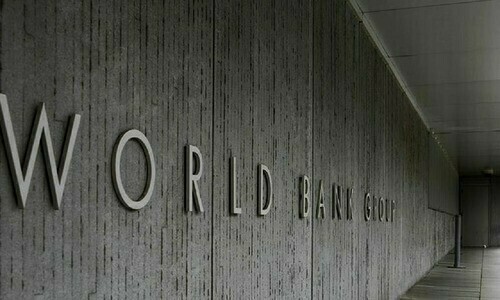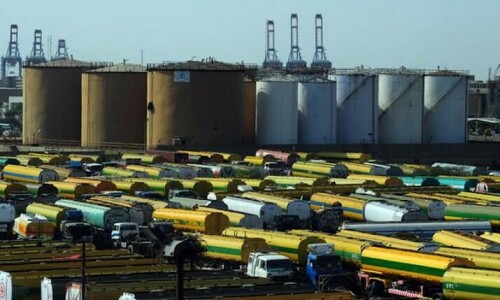THE wheels are turning. The Election Commission has started its homework to hold elections for the Khyber Pakhtunkhwa and Punjab assemblies as well as 93 recently vacated National Assembly seats.
As mandated under Article 224 of the Constitution, these elections must be held within 90 days of the dissolution of the two provincial assemblies and the formal vacation of the NA seats.
The ECP has proposed holding elections for the Punjab legislature between April 9 and 13, and for KP between April 15 and 17. Those dates suggest that the ECP wants the elections held at the tail end of the 90-day window, in the latter half of Ramazan. Dates for the NA by-elections have yet to be proposed.
While there is no legal bar on holding elections for some assemblies early and for the remaining later on, it hasn’t been done before. The novelty of the situation has given rise to some interesting speculation and concerns.
The number of seats for which the ECP has to organise elections in the next three months accounts for more than two-thirds of the seats usually contested in a general election.
The watchdog has been forced to seek a supplementary grant to finance this massive exercise, as the funds previously budgeted for the general election are no longer sufficient for its needs.
It is already evident that a significant portion of those funds may end up being wasted: while the elections for the provincial assemblies will at least return lawmakers who can serve for five years, elections for the National Assembly seats will need to be held again when the current assembly is packed up.
There are concerns also regarding whether the electoral body will be sufficiently able to protect the integrity of elections if they are held under partisan governments. The Daska fiasco springs to mind.
The ECP may have successfully thwarted its hijacking by the government of the day, but it should be pointed out that that was a by-election held on a limited scale. While it is the ECP’s responsibility to deliver regardless of whether the elections are held under an elected government or a caretaker set-up, the job won’t be easy with the political climate as bitter as it is and the stakes sky-high.
The decision to hold elections in the month of fasting must also be reconsidered, as it is likely that both preparations and turnout will be adversely affected amidst the overall slowdown in activity during the period.
It would appear that much more time, effort and money will be spent if two large-scale elections are held rather than one, and controversies will still dog them. Is the public good really better served in this manner? That is the only question that must be asked at this point.
Published in Dawn, January 27th, 2023













































Dear visitor, the comments section is undergoing an overhaul and will return soon.